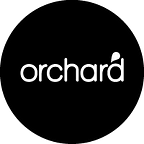When the opposite of a good idea can also be a good idea
We are living in a world where vulnerability is disguised, flaws are airbrushed and weaknesses minimised. Our CVs only promote successes, people are coached in self-promotion and brands are engineered to be flawless. But what if we not only embraced our flaws but used them to create a cult following?
In his book, Alchemy, Rory Sutherland talks about seemingly non-sensical ideas. They’re the type of ideas that don’t make sense but for some reason, they just work. And I bloody love them.
I’m particularly interested in the brands that have embraced a “chink”. They’re the features that would be listed as a weakness on the S.W.O.T analysis and would rarely feature as the single-minded proposition on a creative brief. They’re honest, confident and unashamedly proud of their flaws. Let’s embrace these flaw-riddled brands!
1. Hans Brinker Hostel: Proudly the world’s worst hostel
For nearly 20 years, the hostel has become infamous because of its terrible service, poor amenities and their relentless pursuit of average.
And weirdly, this underwhelming strategy is working and has catapulted them to cult status. They’ve seen a dramatic increase in occupancy rates and profitability and a decline in customer complaints — because everyone knows what to expect when they stay at the world’s most honest hostel.
2. Picnic: A deliciously ugly chocolate bar
Who says a chocolate bar has to be beautiful? When I have a sugar craving, all I want is something that is irresistibly delicious. Its general appearance is secondary to the crunch and taste. And that's exactly what Cadbury was highlighting here.
Whilst others might parade their perfectly oblong bars, perfectly dipped in chocolate and which are all perfectly crumbless upon the first bite, the Picnic is a deliciously ugly morsel. It’s in the imperfections that a sense of craving is elicited: the crumbs, the protruding peanuts, the idea that a bite will be satisfyingly messy!
3. Selling Kazakhstan to the world: Very Nice!
When Sacha Baren Cohen’s first Borat film was released, the film was banned and Kazakhstan’s tourism board purchased a four-page advertisement in American newspapers promoting the natural virtues of the country to counter any misinformation spread by the popular satire.
However, when the sequel was released rather than ignoring or denouncing the satirical film, Kazakhstan embraced it, taking on the popular catchphrase from Borat, “very nice” and transforming it into a tourism slogan.
What does embracing a weakness or a flaw tell us about human behaviour?
When we share a weakness with the world, we’re signalling that we can be trusted, we’ve got nothing to hide and at the same time, we are managing people’s expectations.
In fact, you’re more than likely to forgive us for small inconveniences because we’ve earned your trust, and thus we become more likable.
This phenomenon is called “the beautiful mess effect.” A study conducted by behavioural psychologists found that “self-disclosure can build trust, seeking help can boost learning, admitting mistakes can foster forgiveness, and confessing one’s romantic feelings can lead to new relationships.”
In essence, it creates feelings of human connection between people and brands.
So how could we apply the “beautiful mess effect” in our professional and personal communications?
There are so many ways we can promote our flaws for good:
- Advertise who your product is not suitable for
- Highlight that you’re not the market leader (and why that’s a good thing)
- Expose a weakness on your CV
- Embrace a personal flaw in your Tinder bio
- Share a personal failing in an interview
There are so many wonderful ways to promote yourself in a non-self-promotional way. I promise you, once you get started, those flaws will just keep on coming. Let’s make “flawed” the new “flawless.”
